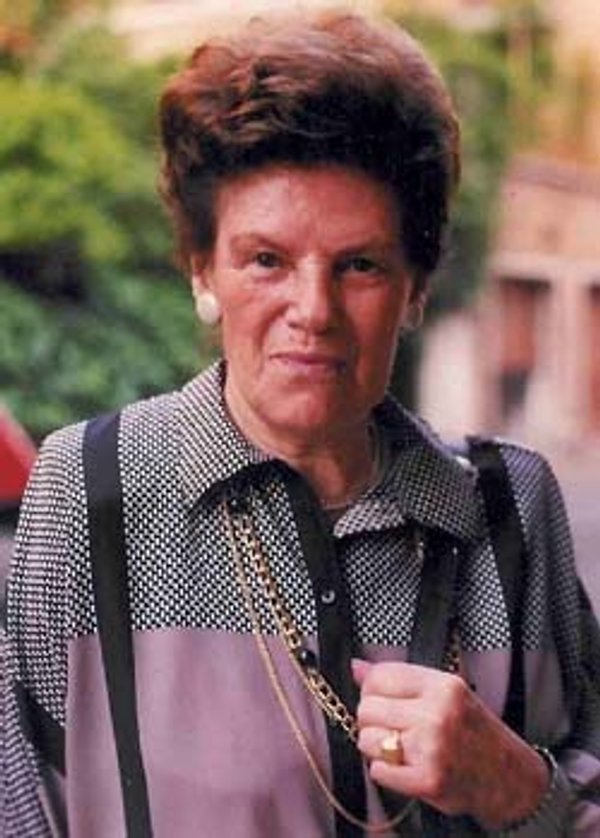On January 12, 2004, before a congregation of faithful from all around the world, Bishop Javier Echevarría, Prelate of Opus Dei, concelebrated a solemn funeral Mass at the Basilica of St. Eugene for Dora del Hoyo.
Dora del Hoyo was born in 1914 in the town of Boca de Huergaro, Spain. She met Opus Dei in Madrid at the age of 29 while working for the Administration of the Moncloa Residence there. Later, she moved to Bilbao, in northern Spain, to help in the set-up of a similar domestic administration in the Abando Residence. It was in Bilbao on March 18, 1946, that she joined Opus Dei, becoming the first woman to do so with the express purpose of dedicating herself to God through professional work in the home.
At the invitation of St. Josemaría, Dora moved to Rome on December 27, 1946, to work in the domestic administration of the main center of the Prelature and to help form others in developing this type of work with professional competence. From that year on, Dora stayed mainly in Rome, giving St. Josemaría marvelous help in professionalizing the work of the home, both in Rome and also in other countries such as England, France, and Ireland.
After the death of St. Josemaría in 1975, Dora continued, with her professional expertise in this field, to train other young women from all over the world who came to Rome to learn how to sanctify the work of the home, doing it well and with a professional outlook. She provided a great support in this activity for the first successor of the Founder of Opus Dei, don Alvaro del Portillo.
In the Crypt
The competence and selflessness with which Dora always carried out her work have made her well-known in many countries and very much esteemed by those who have devotion to St. Josemaría. For that reason, the present Prelate of Opus Dei, Bishop Javier Echevarría, has wished that her mortal remains rest in the Crypt of the Prelatic Church, Our Lady of Peace, in Rome, near St. Josemaría and Bishop Alvaro del Portillo. In this burial place, then, many who knew her or who admired the way she lived her vocation to Opus Dei as the first woman dedicated to the domestic tasks of its centers will be able to show her their respect, affection, and gratitude.
